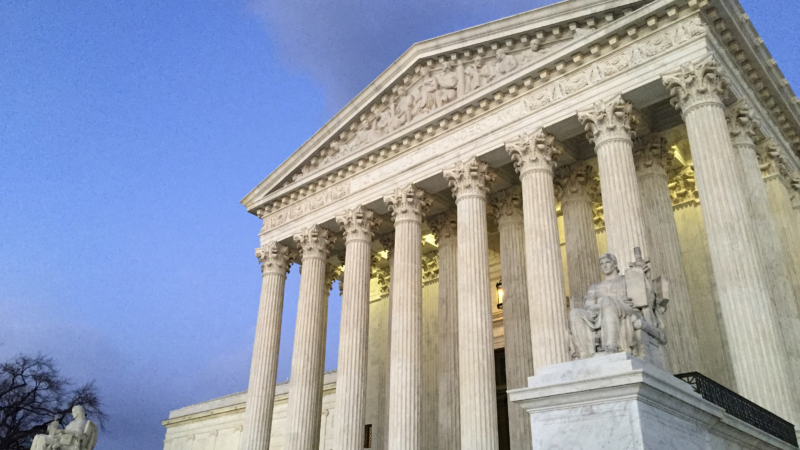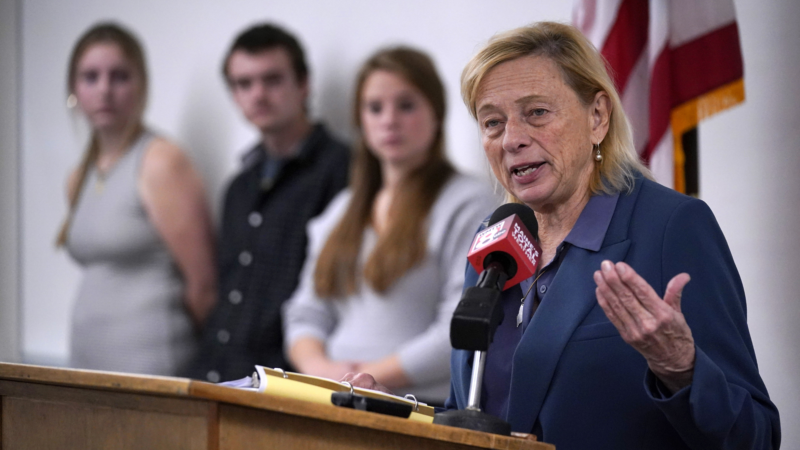Supreme Court to hear arguments on Texas porn law
The U.S. Supreme Court will hear arguments Wednesday in a case involving a Texas law that mandates adult users of pornographic websites verify their ages before they can access the material. It’s a case that’s angered free speech advocates, as well as the adult entertainment industry, and, despite controversy, has inspired other states to pass their own versions of the law.
In Free Speech Coalition et al. v. Paxton, opponents of the Texas law (represented by the ACLU), will urge the justices to overturn the mandate on grounds the law unconstitutionally infringes on free speech for adults.
In court filings, they argue that while the law’s goal is to limit minors’ access to online sexually explicit content, it is overly vague and “imposes significant burdens on adults’ access to constitutionally protected expression.” They also argue that a user, including adults, must submit personally identifying information to access the material, thereby posing security and privacy concerns.
The law, signed by Texas Gov. Greg Abbott in 2023, requires porn sites to verify official documentation, like government-issued ID, or face hefty fines. Under the law’s language, a website that contains “one-third” sexual material is considered a site that requires age verification. Social media sites, however, are exempt. The Texas law also requires sites to display health notices on the landing page of the website that says viewing pornography is potentially addictive, weakens brain function and is associated with low self-esteem and body image, among other issues.
Lawyers for Texas said in their filing that the law’s opponents have failed to show a single person whose rights have been “chilled” by it.
“Texas seeks to protect kids from some of the most prurient sexual content imaginable. And the means Texas has chosen is appropriate,” they said in their court filing. “Texas has addressed only websites dedicated to pornography, has allowed them to comply by using common age-verification technology, and has not imposed criminal penalties. Such a modest but important law satisfies any level of scrutiny.”
Further, they point to the perceived addictive nature of porn, which they said is ultimately harmful to minors. “Online pornographers are sophisticated. Like social media companies, they use complex algorithms to hook users,” they said in response to the Free Speech Coalition’s petition. “Their content triggers neurological effects akin to gambling.”
Despite legal challenges since the law passed, Texas’ age-verification law is still in place ahead of the hearing Wednesday.
A ruling from U.S. District Judge David Ezra last September temporarily blocked the law. Ezra said it’s unclear if the warning labels, which say it is from “Texas Health and Human Services,” are actually proven findings from that agency.
The judge said in his ruling that the “state provides virtually no evidence that this is an effective method to combat children’s access to sexual material” and that the warnings include language that most minors would not understand.
A divided Fifth Circuit vacated that injunction, saying the age-verification requirement doesn’t violate the First Amendment. “The proper standard of review is rational-basis, not strict scrutiny,” the ruling said. “Applying rational-basis review, the age-verification requirement is rationally related to the government’s legitimate interest in preventing minors’ access to pornography.”
States continue passing age check laws
A slew of other state have adopted laws mandating age-verification for porn sites, after Louisiana became the first state to pass such a law in January 2023.
Free Speech Coalition, the adult entertainment group challenging the Texas law, says age-verification laws in Florida, South Carolina and Tennessee went into effect at the start of the new year. At least 19 states have adopted some version of the policy in recent years, according to the group.
Republican members of Congress expressed interest in pursuing a federal version of the law in amici briefs filed in the Texas case. Utah Sen. Mike Lee and 19 other Republican members of Congress wrote to the Supreme Court in support of the Texas law, saying the policy offers a minor barrier for adults, while better protecting children.
Despite their popularity, those laws continue to face legal challenges. On Monday, the 6th U.S. Circuit Court of Appeals panel ruled Tennessee’s law can take effect while a lawsuit continues.
Trump admin tells judge man wrongly deported to El Salvador is alive, still detained
On Friday, federal judge Paula Xinis had ordered the Trump administration to provide daily updates to return Kilmar Armando Abrego Garcia to the United States.
Intellectually disabled teen shot by Idaho police dies after being removed from life support
An autistic, nonverbal teenage boy who was shot repeatedly by Idaho police from the other side of a chain link fence while he was holding a knife died Saturday after being removed from life support, his family said.
Smartphones and computers are now spared from Trump’s reciprocal tariffs
The exemption comes amid worries of how President Trump's steep new tariffs will affect American tech companies that rely on supply chains in China, like Apple.
Federal judge orders USDA to unfreeze funds to Maine
The funds had been initially withheld following President Trump's clash with Maine Gov. Janet Mills over the issue of transgender athletes.
Ukraine’s DIY drone makers are helping fighters on the front lines
The war in Ukraine is now largely being fought with drones. Ukraine made 2 million last year. Drone makers churn them out in factories and mom-and-pop operations like one in a Kyiv basement apartment.
‘The lawn giveth and the lawn taketh away’: Photos from the 41st Annapolis Cup
The yearly competition between the small liberal arts college lauded for its "great books" curriculum and the famed school for naval officer training began in the early 1980s. Several attendees recounted the legend that a discussion between a St. John's College student and the Commandant of the Naval Academy led to the latter's challenge that his midshipmen could beat Johnnies at any sport.









